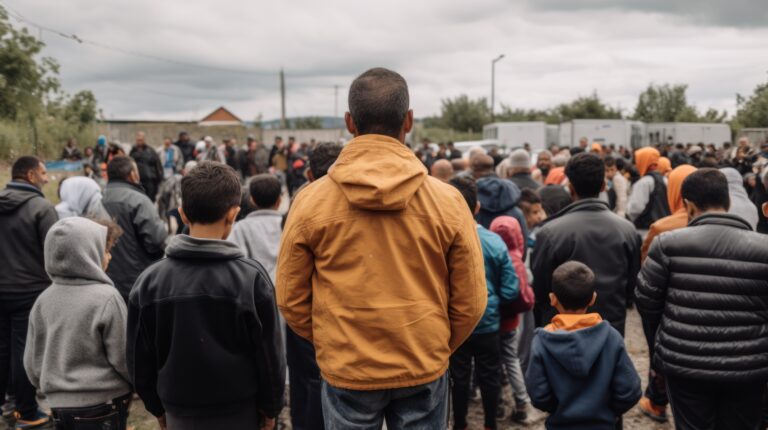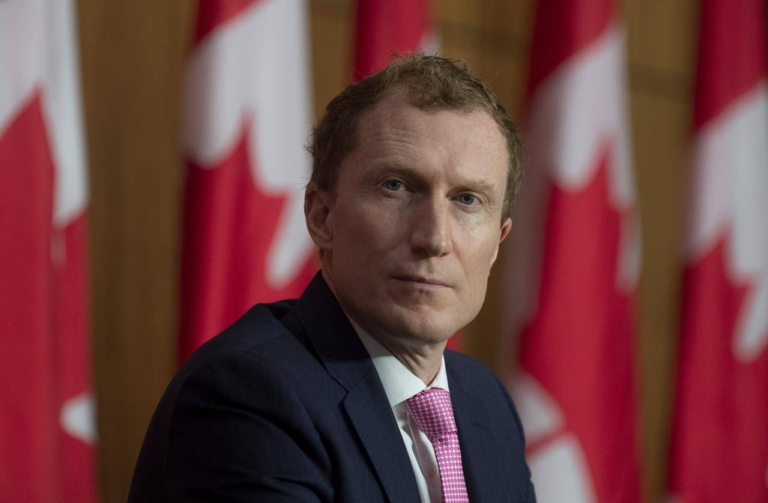A standing committee of the House of Commons says Immigration, Refugees and Citizenship Canada (IRCC) must set a deadline to clear its backlog of applications and put in place accountability measures to make sure that deadline is met.
In his report In Demand Yet Unprocessed: Endemic Immigration Backlogs, Sukh Dhaliwal, chair of the standing committee on citizenship and immigration, goes so far as to call for the establishment of a special task to tackle the challenge.
“Unfortunately, the number of applications has far outpaced processing capacity, while the transition to a digital processing environment has faced major challenges, forming a seemingly insurmountable backlog,” Dhaliwal writes in that report.
Immigration officials in Canada were facing a mountain of 2,166,800 applications, including almost a million, exactly 936,500 which are considered to be backlog, or exceeding the IRCC’s own service standards, as of Oct. 31, the most recent date for which data was available.
There were then 1,256,600 applications for temporary residence, 47 per cent of which were in that backlog. The IRCC also had 639,000 applications for permanent residence and 45 per cent of those were in the backlog.
Read More Canada Immigration News
Canada Battling Large Backlog Of Permanent Resident Card Applications
Ontario Targets Tech Occupations With Mammoth Express Entry Draw
Manitoba Issues 283 Canada Immigration Invitations In New PNP Draw
Immigration officials seemed to be doing better at keeping abreast of citizenship applications. There were 271,200 of those as October came to a close and only 21 per cent of them were in the backlog.
“We’re taking action to reduce the backlogs of applications within our inventories,” notes the IRCC on its website. “Our goal is to process 80 per cent of applications within our service standards. This allows for expected delays in some very complex cases or when we need more information from our clients before we can finalize their files.”
In February last year, the standing committee decided to study application backlogs and processing times and started holding meetings on May 5 of that year. By the end of November, it had heard from 44 witnesses, including lawyers and consultants, settlement workers, industry advocates and refugee organizations.
In addition to the trouble these backlogs pose to foreign nationals applying for permanent residence, temporary foreign workers seeking work permits to fill jobs in Canada, and international students whose studies can be adversely affected by application processing delays, the standing committee also heard from business organizations who noted Canada’s reputation suffers when business people cannot come here in time to attend conferences.
Backlogs Are Hurting Canada’s Reputation Abroad, Say Business Groups
“Canada’s reputation abroad has been tarnished at some international conferences and events when participants were not able to attend as they couldn’t get a visa,” Claire Launay, president of the advocacy group Le Québec C’est Nous Aussi, reportedly told the standing committee.
Tour operators have also faced challenges in getting international groups into Canada, reportedly said Beth Potter, president and chief executive officer of the Tourism Industry Association of Canada.
On Dec. 14 this year, the standing committee released its report. It contains a list of 40 recommendations to the House of Commons to wrestle the backlogs down and improve processing of immigration applications.
Here are those recommendations:
- That IRCC automatically issue postgraduate work permits to students who have successfully completed their studies.
- That IRCC, working with Employment and Social Development Canada (ESDC) and the governments of Quebec, the provinces and territories, which are more aware of the labour needs in their jurisdictions, take immediate steps to address the labour force crisis in Canada through developing comprehensive economic, education and training plans that will address labour market needs into the near-, mid- and long-term future.
- That IRCC issue an acknowledgement of receipt electronically when the file is submitted online..
- That IRCC waive the UNHCR refugee determination requirements for all privately sponsored refugees while respecting the jurisdiction of Quebec and the provinces that receive and approve private sponsorship applications.
- That IRCC end its over reliance on the UNHCR to select and process refugee applications and instead expand the list of referral partners to include other credible, established organizations to help select and process refugee applications.
- That IRCC address the concerns regarding the Program Integrity Framework and the new set of requirements for sponsorship agreement holders.
- That IRCC make clear to all individuals that it is their choice to choose the citizenship ceremonies process best suited to their needs; and that while in-person ceremonies should be the default option, virtual ceremonies should also be allowed; and further, that any self-administered oath of citizenship be subject to robust integrity measures.
- That IRCC increase the capacity of visa offices to process applications, and notably, to communicate effectively with clients.
- That IRCC’s processing of applications in overseas visa application centres be done by departmental employees and not by outside contractors.
- That IRCC audit the online portal process for bugs and errors, commit to immediately correcting these bugs and errors, and ensure that all public facing internet forms are working properly.
- That IRCC consult with users of the online system and portals so that the government can properly troubleshoot the frequent portal glitches and technical problems.
- That IRCC immediately implement the use of plain language in all of its application processes, and that the website be updated to improve the quality of the written French in the online application process for francophone applicants.
- That IRCC immediately ensure that all individuals and their immediate families who supported the various Canadian missions in Afghanistan be granted special immigration measures into Canada without delay and that, if they have already undergone previous biometric examination as part of those missions, they be considered exempt until they are landed on Canadian soil.
- That IRCC create a public policy to ensure that, when there is a humanitarian crisis, all refugee applications are processed using the same criteria regardless of country of origin.
- That IRCC set a deadline to clear the backlog and put in place accountability measures to ensure that the deadline is met; and that a special task force be established and a deadline be set to process older backlog applications.
- That IRCC update its online and public facing internet systems to provide real-time case updates to individuals, their appointed advocates and anyone else they authorize to see their private information on their behalf.
- That IRCC post accurate processing times online.
- That IRCC grant open work permits to asylum claimants in Canada without delay.
- That IRCC create a temporary public policy for protected persons to allow them to obtain permanent residence automatically, as they have waited in the backlog, in some instances, for years.
- That the minister of immigration, refugees and citizenship act on his mandate letter to speed up family reunification applications for both refugee applications and family class applications and that the government regularly publish the processing times for these streams.
- That IRCC issue open work permits to all undocumented people and temporary foreign workers in Canada.
- That IRCC create a temporary public policy to regularize undocumented people and temporary foreign workers in Canada, including caregivers who have worked in Canada to obtain permanent residence, and where the backlog has directly impacted their lives and livelihood.
- That IRCC create a specific permanent residence portal for the caregiver programs.
- That IRCC remove the cap per program for the Home Support and Home Child Care Provider Pilots, and remove the two-year work experience requirement for the Live-in Caregiver Program
- That IRCC develop proper criteria that are outlined clearly so that officers and the public can understand how these determinations are made.
- That IRCC or third-party interviews be recorded for accountability purposes, and that the recording may be used as evidence for any judicial review of the application decision.
- That IRCC survey various jurisdictions’ immigration officer trainings to determine whether there is a model for training that is most suited to the Canadian context; that IRCC consequently develop and conduct training to assist officers in making informed decisions with cultural awareness and sensitivity in mind when processing applications and conducting interviews.
- That IRCC work with external stakeholders, including Quebec stakeholders, lawyers specializing in Quebec civil law and faith community leaders, to establish best practices and new training and guidelines to assist visa officers in recognizing and understanding different cultural norms of marriage, and how to question applicants in a culturally sensitive way to assess the genuineness of a relationship.
- That IRCC train and hire local officers and teams to specialize in the processing of specific applications and streams.
- That IRCC issue all relevant officer notes to applicants at every stage to ensure that applicants get updates on their files through a more enhanced and efficient system.
- That IRCC allow minor corrections to be made, including a missing document, and provide sufficient time to submit or correct errors before returning or refusing immigration applications in order to provide more client-oriented service.
- That IRCC create the position of an immigration ombudsperson to oversee the operations of IRCC, and who, with actionable powers, would have the authority to supervise processing times for all immigration streams, including temporary immigration streams, and to mandate changes to processing times and methods, as needed.
- That IRCC create a departmental division independent of others in resources and staffing, for the processing of applications from people in emergency situations.
- That the Government of Canada and IRCC invest in emergency preparedness programs to respond to global humanitarian crises so that resources are not removed from the delivery of existing programs.
- That, when the Government of Canada introduces new immigration measures, additional resources and additional level numbers are provided to meet the demands of the new initiatives.
- That IRCC provide housing supports to Afghan interpreters and their family members who have fled to third countries.
- That IRCC lift the quota for Afghans who served Canada and for their loved ones in need of safety.
- That IRCC urgently and expeditiously bring Afghans who served Canada and their loved ones to safety in Canada.
- That the Government of Canada provide additional staffing and resources at IRCC to fully address the application backlogs and processing delays that have plagued the department for years and caused massive upheaval in the lives of refugees, immigrants, temporary foreign workers, and students.
- That IRCC allocate more staffing resources in call centres so that people can receive timely information about their cases.



